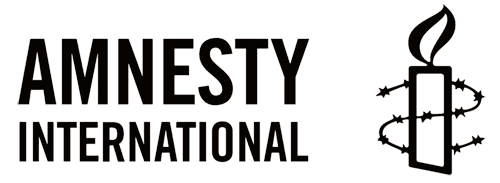Dear Attorney General,
I am writing in grave concern for the life of 25-year-old singer Yahaya Sheriff-Aminu. On 10 August 2020, an Upper Sharia Court in Kano state convicted and sentenced to death Yahaya Sheriff-Aminu (who was then 21 years old) of “blasphemy” for circulating a song on WhatsApp that was considered blasphemous against Prophet Muhammad SAW. In January 2021, a High Court in Kano State overturned Yahaya Sheriff-Aminu’s conviction and ordered his case to be retried due to irregularities in the original trial.
Yahaya Sheriff-Aminu’s lawyers appealed the decision for a retrial, indicating that he will still face the same blasphemy law of Kano State and asked the Kano Division Appeal Court to dismiss the case entirely and declare the blasphemy law unconstitutional. In August 2022, Kano Division Appeal Court affirmed the High Court’s order for a retrial and upheld the blasphemy law as constitutional. In November 2022, Yahaya Sharif-Aminu’s lawyers filed an appeal with the Supreme Court of Nigeria, challenging the constitutionality of the blasphemy laws of Kano State. Two years on, the date for the hearing has yet to be fixed. In the meantime, Yahaya Sheriff-Aminu remains in detention pending his appeal before the Supreme Court.
In March 2024, Amnesty International visited Yahaya Sheriff-Aminu in detention and found him in poor health as he has severe asthma and periodically needs an inhaler and related medications. Additionally, he was not provided with food and adequate clothing – things he was still not being given access to until that point. In November 2024, Amnesty International visited Yahaya Sharif-Aminu again and, although he is recuperating due to medications supplied to him by his family, when possible, he still requires regular access to his medications which is not currently being adequately provided for.
Blasphemy laws are a violation of the right to freedom of expression. Additionally, the use of the death penalty for “blasphemy” violates Nigeria’s obligations under the International Covenant on Civil and Political Rights which restricts the use of this punishment to the “most serious crimes”, which the UN Human Rights Committee has clarified as referring to intentional killing.
I urge you to drop the charges against Yahaya Aminu Sheriff to ensure his immediate and unconditional release and work towards securing the timely setting of a date for appeal hearing. In the meantime, he must be held in detention conditions that conform to international standards (as per the Mandela Rules) and be granted immediate access to adequate health care, as well as adequate food and clothing.
Taustatietoa
The death sentence imposed on Yahaya Sheriff-Aminu by the Upper Sharia Court in Nigeria’s Kano state was widely criticized both domestically and internationally – including by the European Parliament, who during its session of 20 April 2023 called on Nigerian authorities to release Yahaya Sheriff-Aminu. UN experts on 16 May 2024 also called for the release of Yahaya Sherrif-Aminu. Furthermore, there were serious concerns about the fairness of Yahaya Sheriff-Aminu’s trial and the framing of the charges against him. Before and during the trial, he was not permitted legal representation. He was finally granted access to legal advice to prepare an appeal after human rights lawyers and activists pressured the court to respect his right to legal representation. In Kano state under the Sharia law, “blasphemy” is a criminal offence which carries the death penalty.
The death penalty remains a lawful punishment in Nigeria and continues to be imposed throughout the country. In 2023, more than 246 new death sentences were recorded. In total, more than 3,413 people were under death sentence by the end of the year. In Nigeria, the 2004 National Study Group on Death Penalty and the 2007 Presidential Commission on the Administration of Justice both stressed that the Nigerian criminal justice system cannot guarantee a fair trial and called for a moratorium on the death penalty.
The blasphemy laws and their implementation violate Nigeria’s obligation to respect and protect the right to freedom of opinion and expression, set out in Article 19 of the ICCPR. Article 19(1) of the ICCPR states that everyone has the right to hold opinions without interference. Article 19(2) states that everyone has the right to freedom of expression, including the right to seek, receive and impart information and ideas of all kinds through any media. Under Article 19(3), certain restrictions may be imposed on the exercise of the right to freedom of expression (but not the right to freedom of opinion), but only if such restrictions meet the strict test of being provided by law and demonstrably necessary and proportionate for one of the specific legitimate purposes which are permissible under international law.
The UN Human Rights Committee, in its General Comment no. 34 on freedoms of opinion and expression, has expressly stated that “Prohibitions of displays of lack of respect for a religion or other belief system, including blasphemy laws, are incompatible with the Covenant [ICCPR], except in the specific circumstances envisaged in article 20, paragraph 2, of the Covenant.” Article 20(2) of the ICCPR requires that “Any advocacy of national, racial or religious hatred that constitutes incitement to discrimination, hostility or violence, shall be prohibited by law.” (para. 48).
The African Commission on Human and Peoples’ Rights (African Commission) has repeatedly adopted resolutions on the death penalty, calling on States Parties to the African Charter on Human and Peoples’ Rights – such as Nigeria – to “observe a moratorium on the execution of death sentences with a view to abolishing the death penalty” and to ratify the Second Optional Protocol to the ICCPR, aiming at the abolition of the death penalty, including most recently in November 2024.
Detention conditions in Nigeria are harsh, with food, healthcare and other conditions falling short of the minimum requirements set out in the UN Standard Minimum Rules for the Treatment of Prisoners (the Nelson Mandela Rules) and other international standards.


